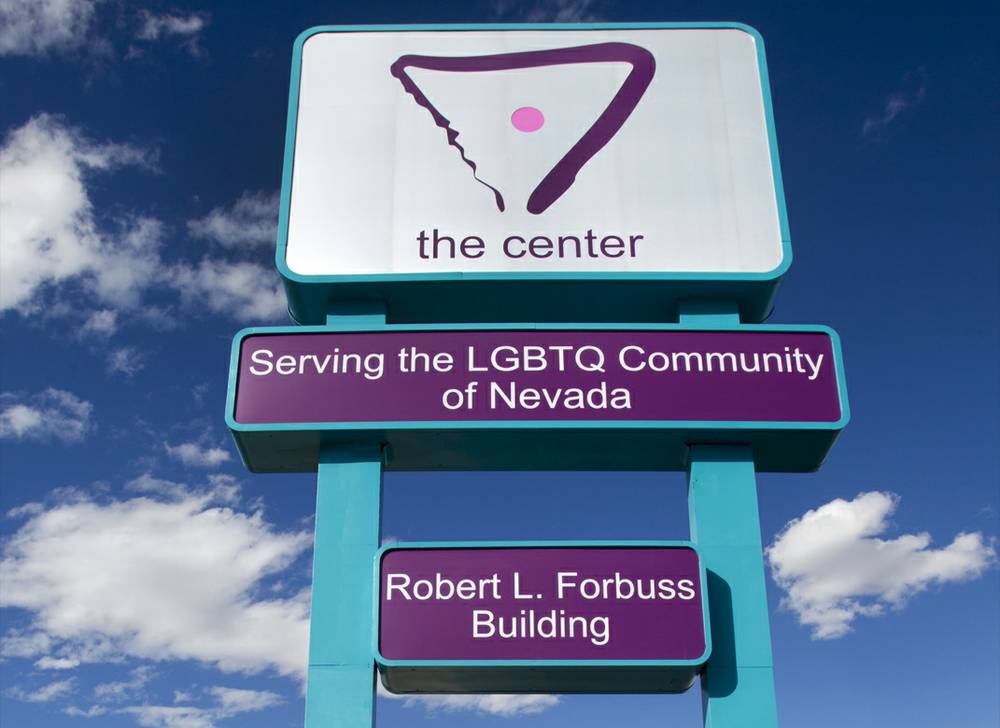Las Vegas’ elderly are among the most vulnerable in the COVID-19 pandemic, and for some gay, lesbian and trans seniors, isolation has left them even more vulnerable.
“Many [LGBT seniors] come from before the time same-sex couples could build families as we can today, and many of our seniors have lost their spouse. They’re widows, and the Center is their primary social engagement,” says LGBTQ Center of Southern Nevada executive director John Waldron. “Many of those folks are now at home and depending on us to reach out to them.”
Prior to the pandemic, the Center provided meals to LGBT senior citizens when they were participating in events as part of a grant awarded by Clark County. But when non-essential businesses were forced to close in March, many of those seniors who relied on the Center for food went hungry.
“We were able to go to the County and say, ‘Can we change the requirements of our grant to be able to deliver meals to our seniors at their home?’ The county was like, ‘Absolutely, yes, do it.’”
The benefits were twofold. LGBT seniors in the community would have access to healthy meals provided by the café at the Center, and the restaurant, which was facing the possibility of laying off its staff, was able to keep its workers employed.
“We were able to use those funds to work with the café and to get out and deliver the meals to the seniors who don’t have to leave their homes,” Waldron says. “Even if we can’t be with our seniors, at least [we can] let them know we’re there for them.”
The café at the Center also partnered with Delivering with Dignity, a Clark County program that delivers meals to vulnerable families in the Las Vegas Valley.
“In addition to the meals we’re sending to our seniors, we have 50 other individuals in our community who we identified as being folks who cannot leave their homes right now, and we are able to get them prepared meals twice a week … and all of that allows our café to continue to employ their staff,” Waldron said.
Waldron says one family that frequents the Center had a loved one die due to the Coronavirus. That family had to deal not only with the grief of their loss, but with the unfathomable task of making funeral arrangements while in quarantine.
Because everyone in the household had been exposed to the virus, no one could leave the house, Waldron said, making it even harder to do basic things, like grocery shop for food.
“They’re regular participants in the Center and there are seven people in the home. They’re all currently quarantined for a 14-day period, so we are providing them meals twice a week for the entire family,” Waldron said.
In addition to providing meals to the community, Waldron said the Center has shifted almost all of its programming online, but that has posed additional challenges.
“The whole purpose of the Center is [to be] a gathering of people; that’s what we’re there to do, that’s why it's called the Center. We want to be the Center where people socialize—but we can’t do that right now, so what could we do? We immediately shifted everything online, to where we’re delivering programing remotely,” Waldron said.
But an increase in “Zoombombing,” or hacking Zoom videoconference calls to harass users, has been a worldwide issue since the pandemic began.
“One of the primary missions of the Center is to be a safe and affirming community for the trans and gender non-conforming community,” Waldron said. “When you transfer programming online and you don’t take certain steps to protect the community, it makes people vulnerable when they’re participating in a new format and other people can tap into [it].” Waldron noted instances in Los Angeles and San Francisco where people saying homophobic slurs had infiltrated Zoom meetings. “That allowed us here in Las Vegas, as we were preparing to do ours, to do things like password protect the meetings, require registration and so forth. We do that to protect our clients because many of them are vulnerable and these kind of attacks can launch all kinds of emotional responses,” Waldron said.
He adds that specialists from the Center Advocacy Network—a program designed to assist people in crisis—are answering phone calls to assist the community and to provide resources.
“We’re getting 25 to 30 calls a day from people just needing some sort of resource, and those specialists are responding to those calls,” Waldron said. Each specialist has completed a six-week program and is trained in working with people in crisis. “We never tell people go call [a number],” he said. “We call numbers and connect them with direct resources.”
Next on the agenda is turning the phone service into a 'round-the-clock hotline.
“We have been coordinating with all our specialists who are certified and we are working now on preparing to offer a 24-hour hotline,” he says. “That’s been a lot of work to get it prepared, and we’re almost there.”
For more information, visit thecenterlv.org.





